In this piece, Besire, a trauma psychotherapist/psychologist in Pristina, Kosovo interviews and makes a few comments for context. She herself was a refugee who survived very difficult times. She wanted the women’s stories to break through the walls of her office into the world and did the women. here must s be pointed out that stories are given with the consent of clients. These stories need to be held, cradled and the women celebrated for their courage, their strength and their love.
Teuta’s Story
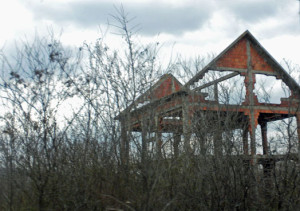 I just want people to know what we experienced and what we still deal with! I’m the lucky woman, because my husband knows what happened to me, accepted that, and try to be supportive at maximum, but there are thousands of woman that can’t talk about their experience, they suffer in silence. Alone. In my village there are a lot of woman who were raped and never dare to talk or seek treatment, because if they speak they can be excluded from the family, abused, made into prostitutes and remain homeless. Speaking about what happened can bring terrible things. There is humiliation, fear, shame, guilt and anger!
I just want people to know what we experienced and what we still deal with! I’m the lucky woman, because my husband knows what happened to me, accepted that, and try to be supportive at maximum, but there are thousands of woman that can’t talk about their experience, they suffer in silence. Alone. In my village there are a lot of woman who were raped and never dare to talk or seek treatment, because if they speak they can be excluded from the family, abused, made into prostitutes and remain homeless. Speaking about what happened can bring terrible things. There is humiliation, fear, shame, guilt and anger!
I would like people to not judge us, not stigmatize us, to see as like a normal women.
We didn’t choose to be raped or tortured, they choose us. With what we could protect our self?
It was very easy to be man in the war time, because they took the weapons and fight in mountain, or some just hiding in mountains, but we were unprotected, without weapons, we fought for our children and ourselves with our bodies.
***************
In the summer of 1998, my life changed forever. As was usual for our summer vacation, my husband, myself and our two children came from Germany where we have lived for several years to our home of origin in Kosovo. I was pregnant with our third child. We planned to stay a month with our families as we normally did and then return to Germany where my husband worked in construction and I was caretaker for his boss’s two children. We had a nice life.
A few years earlier, my husband had finished the army in Croatia so he was an experienced military man. The war between the Serbian and Albanian Kosovars had begun in earnest in January 1998. Our army people came to our house and asked my husband to join KLA — Kosovo Liberation Army. It was a request he couldn’t refuse — these were our people — so my husband joined. I didn’t go back to Germany but remained in our birthplace with my mother-in-law in her home while my husband went into the mountains with KLA.
War had been going on for six months and everywhere was heard shots.
People stayed at home all the time, only in the cases when we absolutely needed something from town or to visit doctor did we go out. I was scared, mostly because i was pregnant and the children were so young, 4 and 2 years old. I heard that other people in some villages were already left their homes to go the mountains where they felt safer – they were afraid to walk on the roads because the enemy soldiers would harm them, rape or kill them. I was sure that very soon we would have to do this as well.
Days went by, months went by and my husband could not come home because he could be captured by the enemy forces and killed automatically. Time for birth was approaching. I couldn’t decide if I should go to the hospital or give birth at home.
In hospital were working just Serbian doctors and nurses, I heard cases that they kill Albanian babies and tortured the mothers, so I decided to give birth at home with the help of my mother in law.
In January 1999, she arrived; I gave birth to my third child. Only three weeks after bringing into life my daughter, the enemy came to our house and we were forced to leave.
The village was surrounded by military and paramilitary forces and we escaped to the mountains. We all knew that when the enemy came into the village or neighborhood they burned houses, maltreated/abused or raped women and killed men and sometimes boys.
Together with my mother in law and other fellow villagers, we spent many days there in cold weather and without any food. We were unprepared to leave the houses. We took what we could: some bags with food, mostly bread but that was not enough for staying long. We created plastic pavilions (tents) to sleep but it was snowing and extremely cold. Everywhere you could hear children crying. The children were sleeping in their clothes and boots and the babies got severe rashes.
Besire: During the time when the civilian population stayed in the mountains, they used fire, and diapers often washed with water only, we had no soap or sometimes the ashes of the fire that was more efficient for fading. The enemy saw the fires and knew where we were.
The small baby I kept all the time at the breast in order to keep her warm and trying to feed. But I didn’t have milk enough because I didn’t eat, saving bread, our primary food by now, for children. My mother in law was taking care for other two children most of the time.
But enemy forces didn’t even allow us to stay in the mountains they gathered hundreds of people who they had forced to leave their houses and in big crowds we were forced to move from one village to another.
Men were sent in an unknown direction, while all women were gathered in the school yard of the village and times to times the Serbian army chose some of the most beautiful women, sent them inside the school or behind the school where they would sexually abuse them. In this collection I was chosen together with 7 other women and sent by 3 paramilitary behind the school and they forced us to take our clothes away.
My one month baby was crying all the time as my mother-in-law held her on the other side of the building and this was bothering one of the paramilitaries, so he took my mother in law who was holding the baby and brought her behind the school where we were naked.
I remember when He asked: “Whose is this child?” All the seven women who were naked said that: “It’s mine, it’s mine.”
Teuta started crying when she reached this part of her story and remembers this moment. She cannot stop crying and she understands very well the reaction of each woman, because all of them wanted to escape from the clutches of those “savages” as she calls them.
After calming herself she continues her story.
But then my mother in law shows who the real mother of the baby is and I survived from the rape this time. While leaving the group I always am sorry when I remember that had to put on clothes of another woman due to the fact that I was in a hurry to escape and i couldn’t find mine. But our suffering did not end because after some hours, after they raped a lot of young women they forced us to go on the road with the long line of people walking or some with truck and moving from one village to another. I was extremely tired , because I didn’t eat nothing for days .I keep all the time the baby in my arms but she was not was not moving anymore because I couldn’t breastfeed her, I thought she was dead –died of starvation. I thought that the baby was dead, and for a moment I was thinking, maybe is better because she will not suffer any more!
I was numb, i even couldn’t cry. I decided to leave the baby near the road while we were walking, but a young Serbian solder nearby felt compassion for me, it seemed. He tried to say something in his language but i could not understand, then he start doing like a dog, which i understood that he was saying to take the baby and bury somewhere because the dogs might eat her, so I started crying and took baby Flaka up again my arms. I kissed her like I wanted to apologize to her why I wanted to leave her there — I was so sure that she was de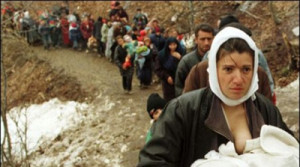 ad.
ad.
Besire: From the stories of Teuta, I understood in general, the Serbian regular army, rarely mistreated civilians, they were fighting with KLA. It was the paramilitary groups that did all the terrorizing and murdering.
Affected by this, I continued on the road with the long line of people, and only a few minutes later a shell from a tank exploded in the middle of the line of trucks and people, causing many deaths and injuries. Immediately after, the paramilitary forces were killing the injured people. They did it coldly with no apparent feeling; meanwhile the others were forced to continue the trip moving around dead or dying people.
The shell noise was so great that my ears were closed and couldn’t hear anything, but I felt very warm and very strange.
There was blood. I didn’t know I was hit at first…shrapnel struck me in the left breast and also hit the baby. Flaka started to move from the pain and in that moment I understood she had been hit in the nose and that she was still alive.
Seeing that enemy forces were killing all the wounded people I approached my mother in law and told her what was happening to me. When she saw me and baby, she was terrified. I could see it and she told me, ssh, be quiet, bear the pain and not scream because she was fearful that they will kill me as they killed also many other wounded persons. Mother-in-law helped to stop the blood with her handkerchief, and we continue the path in the long line of people, but over the days, my wound started being infected causing fever. Also, I tried to clean baby wound but she was not moving again. She was half dead!
After one day of 12 hours of hiking, we were sent to a cooperative, a building for agricultural issues, where the paramilitary forces selected me and other 120 beautiful women, took us inside the cooperative where we were systematically violated. I was with temperature and fever, because of the wound but this didn’t stop them raping me. While my mother-in-law with many others and their children remained outside of the building and she somehow manages to send a message to my father which was enrolled in KLA and happened to be in hiding nearby.
We women were inside the cooperative but the paramilitary didn’t stay all the time inside, they mostly came around 19.00 o’clock.
My father analyzed very well the situation and after many attempts he manages to sneak through the roof and we escaped with the help of the women who remained behind.
During the day the paramilitary stayed in front of the building, drinking coke and singing so I analyzed good the situation and escaped from behind the building and he took me from the cooperative and took me to the closest headquarters, to take medical treatment for the wound. I told him I had to go back. He begged me not to go to the cooperative again, but I had to because we were numbered/counted every night and if one of us was missing, the enemy said that they would kill 10 women for every one escaped.
So I had to turn back, because they were like my sisters, and I could not bear the feeling of guilt of any of them would be murdered because of me – all of them helped me to escape when my father come for me.
As soon as I was back inside the building, the paramilitary forces came to violate, and rape, one if the Serbian paramilitary noticed bandage on my bosom and understood that I had escaped for treatment was treated, and he brutally beats me and breaks my ankle bone with his boots.
It is still not right, all these years later she cannot walk for long periods of time.
It was not just violating us, it was that at night after all day being raped, we try to rest, they come in and urinate on us. Taking careful time.
After several consecutive days of sexual violence in this building, some of the women were released while several others were taken by the Serb forces and later on after the war they were found dead in different wells around the area. That’s what they did. Poison the wells with our own bodies.
Teuta was among the freed women. She returned to her children and mother in law and then was joined by her husband later on, who explained the entire situation to him. Her husband was one of the very supportive ones, there were fewer of those kinds of men and he still continues to support her maximally. He kept her from suicide several times. She, after all these difficulties, experienced many health problems including depression and other symptoms of PTSD, migraine and other physical problems including hypertension for which she ( and the other women) have no money for medicine. She is still undergoing prolonged exposure psychotherapy.
******
Besire: How were the holidays for you before the war and now?
Oh there is a huge difference. The best holiday for me was Bajram holiday. I remember the time when i was unmarried, we couldn’t wait for Bajram, and we were preparing for weeks. I lived in a big village and with a lot of cousins and sisters. We were 7 sisters and all of us had flair for singing with tambourine. So before and during holiday we went house by house to all villages, singing and dancing, especially we went to the houses when were new brides. The new brides wore the best clothes they had and we sing tothem. Now everything is different, everything is so empty.
Today we celebrate just one day of Bajram, and you don’t see joy in peoples face , neither to children, they are not happy anymore. We just say to each other “happy Holiday and that’s it, we don’t sing and dance any more like used to do, even when we smile to each other it seems to me is a fake smile. After the war things changed, it seems that the war ended but took our joy and happiness! Every holiday reminds us of who is not there and how many we don’t know what happened to them.
Besire: What is the best thing that can happen for you?
The worst thing for me now, is to see my daughter with the nose deformed from the grenade. She is already fifteen, an excellent student and it happens many times, she comes home from school crying, because other children call her ” tomato nose” I pray good one day she will have the opportunity to operate her nose and to feel like other children. That is the best that can happen to me!




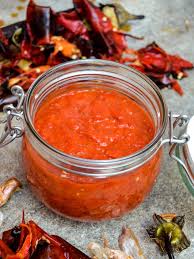
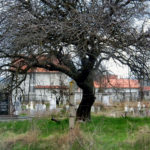
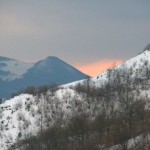
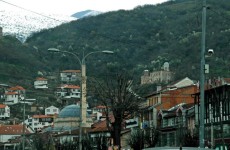
 Globalgirl Media
Globalgirl Media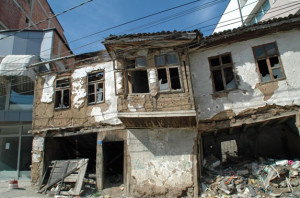
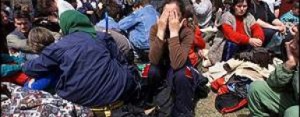 As we, the smaller group around fifty or seventy five people, moved toward the mountain we suddenly we found our self-surrounded by enemy. They jumped out at us from the side of the road. Some of them were dressed like solders and some were dressed in black with head scarves. I had heard that those men with head scarves were very dangerous. All of us were in a panic and begun screaming and crying. Then there were shots. Everyone grew silent. And we waited for what would happen next.
As we, the smaller group around fifty or seventy five people, moved toward the mountain we suddenly we found our self-surrounded by enemy. They jumped out at us from the side of the road. Some of them were dressed like solders and some were dressed in black with head scarves. I had heard that those men with head scarves were very dangerous. All of us were in a panic and begun screaming and crying. Then there were shots. Everyone grew silent. And we waited for what would happen next.
 ad.
ad.